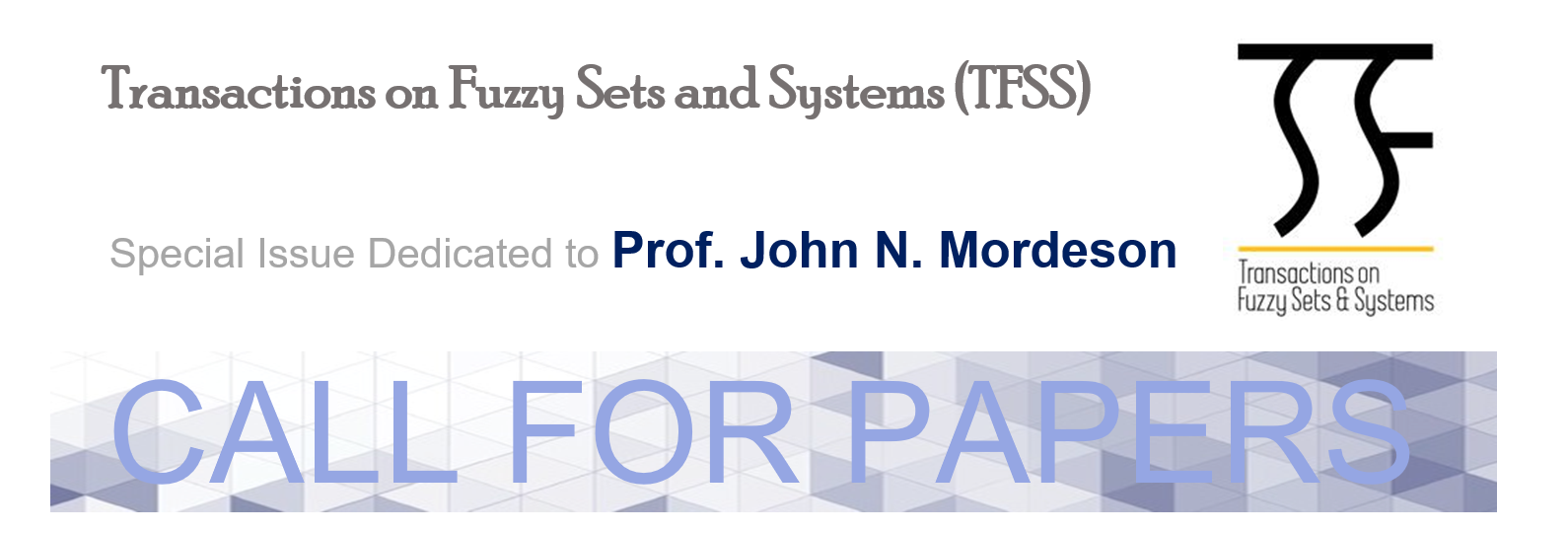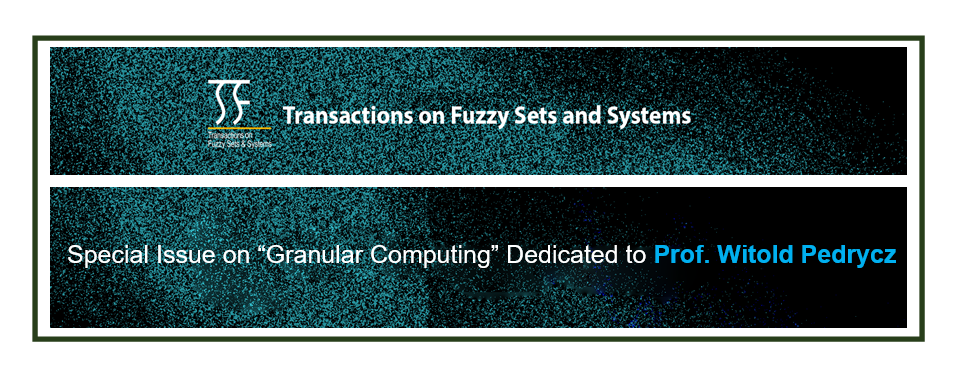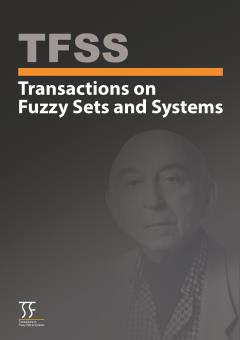1- Pioneering Fuzzy Set Theory: Celebrating the Contributions of Prof. John N. Mordeson
(Submission Deadline: March 2025)
2- Special Issue on “Granular Computing” Dedicated to Prof. Witold Pedrycz
(Submission Deadline: June 2025)

1-Pioneering Fuzzy Set Theory: Celebrating the Contributions of Prof. John N. Mordeson
A Special Issue of TFSS is dedicated to Professor John N. Mordeson in celebration of his 91th birthday, to mark his long and outstanding research career in Fuzzy Knowledge and to honor his great contribution to the advancement of science.
John Mordeson is Professor Emeritus of Mathematics at Creighton University. Dr. Mordeson received his B. S., M. S., Ph. D. from Iowa State University. Dr. Mordeson has published twenty books and over two-hundred journal articles on fuzzy science and has remarkable achievements in Fuzzy Knowledge. He is on the editorial board of numerous journals and has valuable scientific activities in fuzzy science.
His research interests are in abstract algebra and fuzzy mathematics related to global challenges such as climate change, coronavirus pandemic, human tracking, biodiversity, and other grand challenges Also, He has provided with an extensive set of tools for applying fuzzy mathematics and graph theory to social problems such as human trafficking and illegal immigration.
Topics in this special issue include, but are not limited to:
- Fuzzy Set Theory, Fuzzy Structure;
- Fuzzy Graph, Fuzzy Model;
- Fuzzy Logic for Business, Finance, and Management;
- Fuzzy Mathematical Modeling;
- Soft Computing and Uncertainty Modeling;
- Fuzzy Mathematics with Applications to Engineering, Computer Science, and Mathematics.
and other interdisciplinary topics related to fuzzy mathematics.
Articles should only be sent to the editorial office electronically via https://sanad.iau.ir/Journal/tfss.
If you have any problems, please contact us: tfssiauba@gmail.com
Guest Editors:
Prof. Hee Sik Kim: Department of Mathematics, Hanyang University, Seoul, 04763, Korea.
Prof. Peide Liu: Professor, School of Management Science and Engineering, Shandong University of Finance and Economics, Shandong, China.
Prof. Sankar Kumar Roy: Professor, Department of Applied Mathematics, Vidyasagar University, Midanpore-721102, WB, India.
Prof. Sunil Mathew: Department of Mathematics, Associate Professor of National Institute of Technology, Calicut, India 673601.
Dr. Byung Soo Moon: Korea Atomic Energy Research Institute, Department of Instrumentation and Control, South Korea.
Dr. Kasani Prudhvi: Department of Mathematics, Osmania University, Hyderabad, India.
Submission Deadline: March 2025

2- Special Issue on “Granular Computing” Dedicated to Prof. Witold Pedrycz
Granular Computing (GC) is a computing paradigm that processes complex information units—information granules. Essentially, information granules are created by abstracting data and deriving knowledge from information. Information granules are ubiquitous. We often use time granules (seconds, months, years). We granulate images; millions of pixels processed individually by computers appear to us as granules representing physical objects. In natural language, we work based on granules of words that become crucial units to facilitate interaction and communication between people. Intuitively, we sense that information granules are at the heart of all our perceptual activities. Over time, several formal frameworks and tools have been proposed that focus on processing specific information granules. Interval analysis, rough sets, and fuzzy sets have all played important roles in the representation and processing of knowledge. Consequently, information granulation and information granules have appeared in numerous application domains. The well-known ideas of rule-based systems are based on information granules.
Topic in this special issue include, but are not limited to:
- Granular Computing and Decision-Making.
- Granular Computing and Optimization.
- Granular Computing and Intelligent Systems.
- Granular Computing and Machine Learning.
- Granular Computing and Approximate Reasoning.
- Granular Computing and Multi-Valued Logic.
- Granular Computing and Dynamic Systems.
Articles should only be sent to the editorial office electronically via https://sanad.iau.ir/Journal/tfss.
If you have any problems, please contact us: tfssiauba@gmail.com
(Submission Deadline: June 2025)
Editors:
Prof. Tofigh Allahviranloo, Research Center of Performance and Productivity Analysis, Istinye University, Istanbul, Türkiye.
Prof. Mehran Mazandarani, Dep. of Mechanical and Control Engineering, Shenzhen University, Shenzhen, China.
Dr. Sovan Samanta, Dep. of Mathematics Tamralipta Mahavidyalaya (Vidyasagar University) Visiting Professor, Istinye University, Istanbul, Türkiye.


